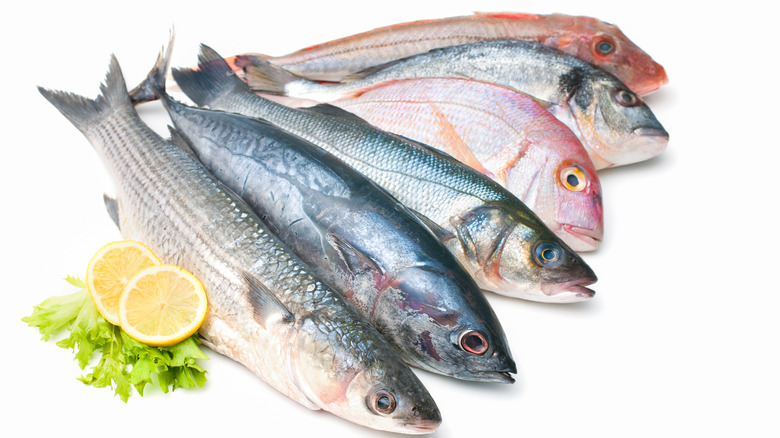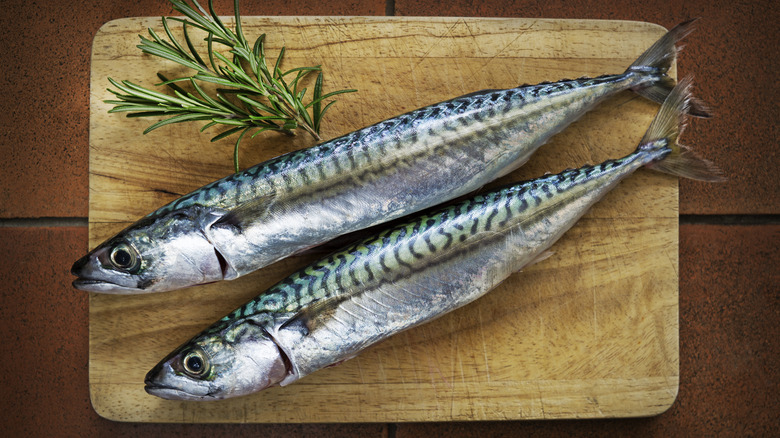Which Fish Is The Safest To Eat Every Day?
When it comes to seafood, "safe" can take on a number of meanings. For starters, mercury content is a well-known and vital factor to consider when choosing fish. Consuming mercury, even in small amounts, according to Healthline, can cause serious health issues that run the gamut from neurological function to heart health.
Sustainability, including overfishing and if the methods used to catch the fish harm our oceans, is also worth considering when choosing which fish to consume. Do you want farm-raised or fresh-caught?
We all know that fish is a healthy protein chock-full of heart-healthy omega-3s to include in our diet. If you wish to consume fish on a daily, or near-daily, basis, there is one finned fillet that beats out the rest in terms of both these safety aspects. While the mackerel family is extensive and includes 30 different types, only one is worth looking out for on menus and at mongers.
Atlantic mackerel tops the list of safest fish
While mercury content is something to watch out for, the benefits of consuming fish generally outweigh the risks of mercury exposure. The FDA recommends two servings a week, and the American Heart Association's research found that people who eat seafood four or more times per week were at a 22% lower risk of heart disease than those who only ate it sparingly. The key is choosing fish that are low in mercury.
Predatory and larger fish tend to have higher mercury levels as it accumulates when they feed on smaller fish containing it. Atlantic mackerel contains just 0.005 parts per million (ppm) of mercury. Compare that to swordfish with 0.995 ppm and bigeye tuna with 0.689 ppm, and it's on the much safer end of the range. It's a great low-mercury option to get the omega-3 fatty acids and protein benefits from fish.
Another way in which Atlantic mackerel are considered safe is that they are sustainable. The fish grow fast and repopulate swiftly, making overfishing not an issue. In addition, the fishing method used to catch them (mid-water trawls) is ocean-friendly, leaving their habitat intact.

